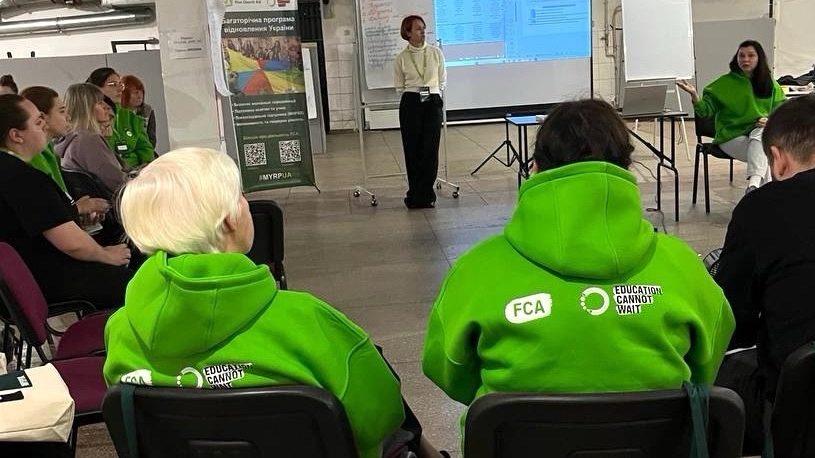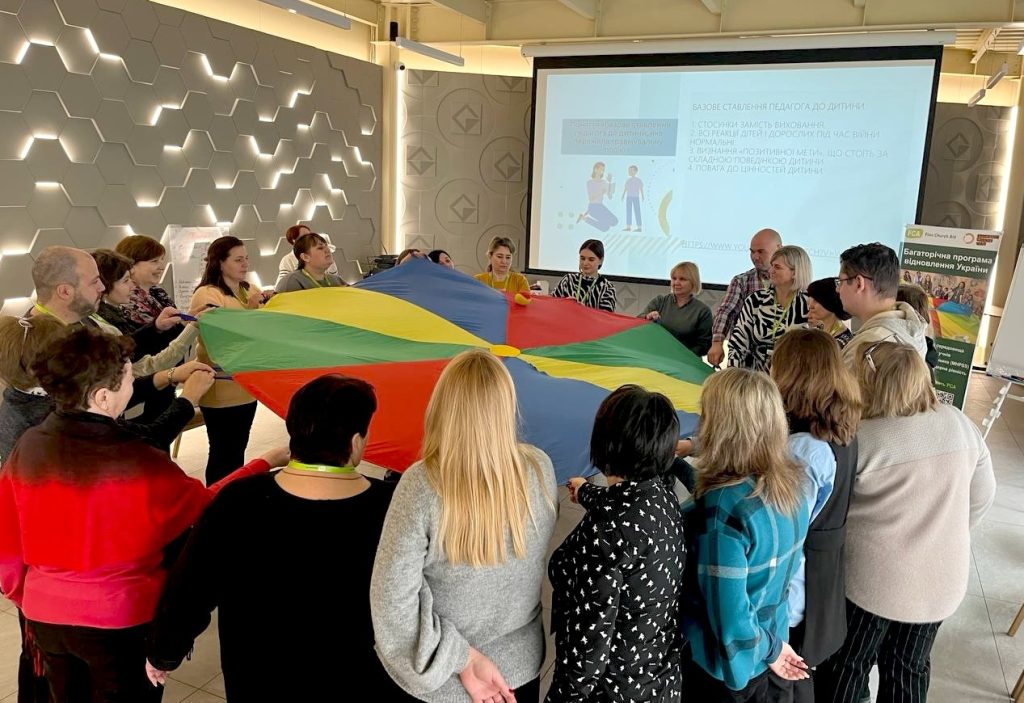Over 120 educators from frontline regions of Ukraine receive psychosocial support training
In November 2024, Finn Church Aid Ukraine concluded a series of two-day training sessions for vocational education teachers from the Poltava, Sumy, Kharkiv, and Dnipropetrovsk regions. These sessions were part of the “Multi-Year Resilience Programme” (MYRP), funded by the global organisation Education Cannot Wait.
“YOU GAVE US two days without the war,” shared Natalina Zyhalo, a teacher from the Dnipropetrovsk region who took part in training sessions organised by Finn Church Aid (FCA).
The training aimed to equip teachers with practical tools to support students in frontline areas while also helping educators manage their own well-being. Topics included recognising signs of trauma, providing psychological first aid, and fostering resilience among both students and teachers.
A deeply personal role
For Natalina, a psychologist at Sofiyivskyi Vocational College in the Dnipro region, her role is deeply personal. Transitioning to psychology after a career in economics, Natalina brings unique insights shaped by her experiences of loss and resilience during the ongoing conflict.
“Being a psychologist during wartime is like being a lifeline,” she explained. “People come to us in their most difficult moments, and we must always be ready to guide them through their pain and help them rediscover their strength.”
Despite personal tragedy, including the loss of a close friend early in her psychology career, Natalina remains committed to supporting others.

Insights and Impact
Natalina found the training both professionally enriching and personally transformative. She particularly valued the session on understanding trauma responses.
“This training was a gift—a chance to recharge emotionally and learn practical techniques,” Natalina shared. “Psychological first aid is a skill I plan to integrate into my daily work. It’s essential knowledge, especially in our context.”
War leaves lasting scars—stress, displacement, and loss weigh heavily on children, youth, and educators in Ukraine. Teachers, as the first point of contact for distressed students, play a vital role in offering support.
Psychosocial programmes, like those provided under MYRP, equip educators with the tools needed to maintain their well-being while helping students navigate challenges. FCA’s efforts ensure that schools remain spaces of stability and hope for young people affected by conflict.
“As a result of the training, I realised that we need to invest a lot of energy in raising children. After all, a generation of free people is growing up. They are independent, they do not need our advice. And our task is to give them strength and instil faith in them. Our main task is to love them and believe in them,” Natalina concluded.

Why is this important?
In times of war, psychosocial support is vital. Constant stress, uncertainty, the loss of loved ones, and forced displacement significantly impact the psychological well-being of children, young people, and adults.
Psychosocial support helps individuals cope with these challenges, maintain emotional health, and build resilience. It is especially crucial for students continuing their education under difficult circumstances and for teachers who work in such challenging conditions daily.
Key topics covered during the training included:
- Recognising signs of stress and trauma in students;
- Creating a safe and supportive learning environment;
- Active listening as a tool for building trust;
- Providing psychological first aid;
- Techniques for managing complex emotional states.
Participants received practical guidance on fostering trust in the classroom and supporting students during crises.
About the MYRP Project
The “Multi-Year Resilience Programme” (MYRP) aims to support the education system during the ongoing crisis. The project focuses on:
- Providing psychosocial support to children, youth, and teachers;
- Implementing educational programmes;
- Rehabilitating learning environments.
The training sessions conducted by FCA represent a significant step towards creating safe and supportive spaces for the learning and development of youth in Ukraine.